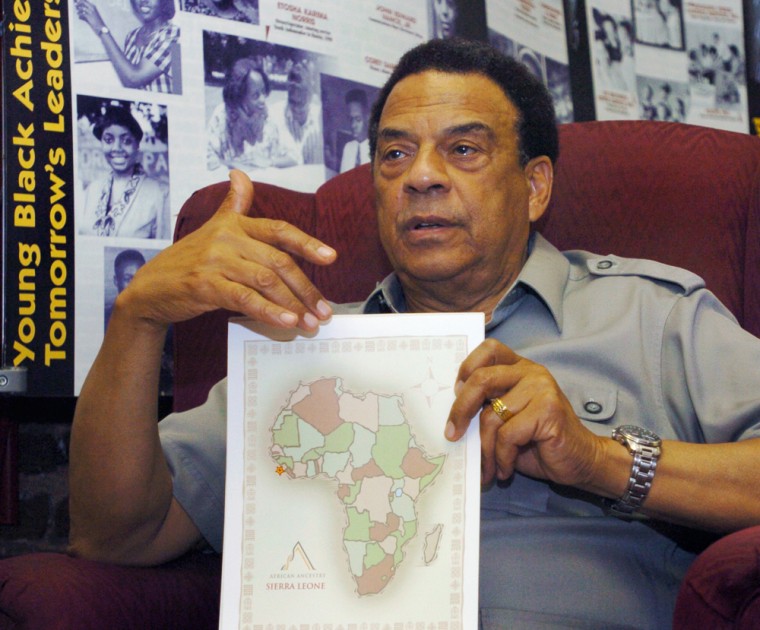Former U.N. ambassador Andrew Young was hesitant to learn about his African heritage, even though the technology to trace his roots had been available for years.
The 72-year-old finally yielded to a request by a company called African Ancestry, which matches DNA samples from clients with a database of more than 22,000 African lineages.
A few weeks after a simple swab of the cheeks, Young’s mother’s line was linked to the Mende tribe in Sierra Leone. The tribe also has roots in Sudan. The link indicates he is a distant cousin of the leader of the Amistad slave rebellion in the 1850s.
“I guess I never really wanted to know where in Africa I was from because I would decide where I was from by where I happened to be,” Young said. “I wanted to be from all of Africa, not just a particular place in Africa.”
Breaking through dead-ends
Hundreds of other blacks, troubled by dead-ends and yellowed records in old government offices, churches and cemeteries, have used DNA tests to reveal their ancestry to other African tribes and countries.
About 2,000 blacks — including 80 in Georgia and 300 throughout the South — have used the company’s $349 DNA test since it was first offered in February 2003. Some of the best-known include filmmaker Spike Lee and actor LeVar Burton of the television miniseries “Roots.”
Young, a longtime civil rights activist and former Atlanta mayor, has been going to Africa for 30 years, helping countless countries with his political and practical wisdom.
Prior to his DNA test, Young said he felt close to the African countries of Angola, South Africa and Tanzania because those were places he actively worked to help promote economic development. But his new link to war-torn Sierra Leone and Sudan has helped provide a focus for the civil rights leader.
“This gives me more reason to be interested in involved in what’s going on,” he said.
The program has its skeptics. Stanford University law professor Henry Greely warns that the tests only identify two of possibly hundreds of ancestors and can only give a person a rough idea of one’s ethnicity.
But “knowing just a little bit is a lot better than knowing nothing,” said company spokesman Michael Darden, who said the test pointed his ancestry to Nigeria.
“It’s particularly important for us because our history was lost when we were taken from the continent of Africa,” said Gina Paige, African Ancestry’s president, who is black and has used the test to find DNA family links with people from Nigeria, Liberia, Angola and Portugal. “Knowing where you are from is a very central component to knowing who you are.”
